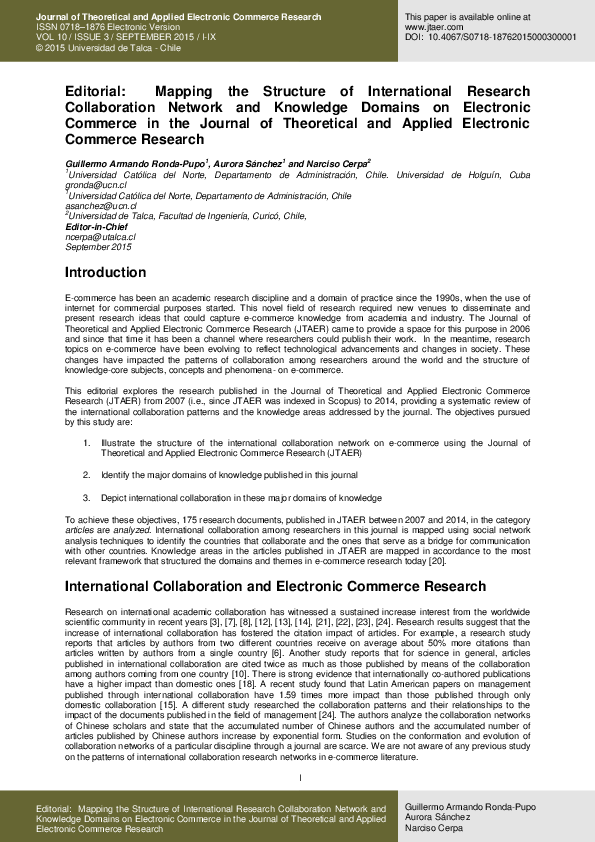Effects of Prior Negative Experience and Personality Traits on WeChat and TikTok Ad Avoidance among Chinese Gen Y and Gen Z
IF 5.1
3区 管理学
Q1 BUSINESS
Journal of Theoretical and Applied Electronic Commerce Research
Pub Date : 2024-01-11
DOI:10.3390/jtaer19010006
引用次数: 0
Abstract
While numerous people use social mobile applications, ads within these apps are often avoided. Although the significance of prior negative experience and personality traits in impacting consumers’ perceptions and behaviors has been acknowledged, limited research has explored their influence on ad perceptions and avoidance. This study aims to examine the effects of prior negative experience and personality traits on ad perceptions and ad avoidance of Generation Y (Gen Y) and Generation Z (Gen Z) within two prominent mobile social apps: WeChat and TikTok. An online survey was used to gather data from 353 Chinese Gen Y and Gen Zers who were active users of WeChat and TikTok. Findings from several regression analyses show that prior negative experience is an essential determinant of ad avoidance, influencing not just directly but indirectly by diminishing perceived ad personalization and intensifying perceived goal impediment and ad clutter. Personality traits also significantly affect ad avoidance, with conscientiousness exerting a positive effect, whereas agreeableness has a negative impact. Notably, agreeableness, emotional stability, and openness to experience moderate the associations between ad perceptions and avoidance. Intriguingly, the effects of these factors are platform-specific, with WeChat’s main factor for ad avoidance being erceived goal impediment and TikTok’s main factor being ad clutter. Based on these findings, the theoretical and practical implications are discussed.负面经验和人格特质对中国 Y 世代和 Z 世代微信和 TikTok 广告回避的影响
虽然很多人都在使用社交移动应用,但这些应用中的广告却常常被人们回避。虽然人们已经认识到先前的负面经验和个性特征对消费者的感知和行为有重要影响,但探讨它们对广告感知和回避的影响的研究却很有限。本研究旨在探讨在微信和嘀嗒这两款著名的移动社交应用中,以往的负面经验和个性特征对 Y 代(Y 世代)和 Z 代(Z 世代)的广告感知和广告回避的影响。本研究通过在线调查收集了 353 名中国 Y 世代和 Z 世代的数据,他们都是微信和嘀嗒的活跃用户。几项回归分析的结果表明,之前的负面经历是广告回避的一个重要决定因素,不仅直接影响广告回避,还通过降低感知到的广告个性化程度、加强感知到的目标障碍和广告杂乱程度间接产生影响。人格特质也会对广告回避产生重大影响,其中自觉性会产生积极影响,而宜人性则会产生消极影响。值得注意的是,宜人性、情绪稳定性和经验开放性缓和了广告感知与回避之间的关联。耐人寻味的是,这些因素的影响具有平台特异性,微信对广告回避的主要影响因素是 "目标受阻",而嘀嗒的主要影响因素是 "广告杂乱"。基于这些发现,我们讨论了其理论和实践意义。
本文章由计算机程序翻译,如有差异,请以英文原文为准。
求助全文
约1分钟内获得全文
求助全文
来源期刊
CiteScore
9.50
自引率
3.60%
发文量
67
期刊介绍:
The Journal of Theoretical and Applied Electronic Commerce Research (JTAER) has been created to allow researchers, academicians and other professionals an agile and flexible channel of communication in which to share and debate new ideas and emerging technologies concerned with this rapidly evolving field. Business practices, social, cultural and legal concerns, personal privacy and security, communications technologies, mobile connectivity are among the important elements of electronic commerce and are becoming ever more relevant in everyday life. JTAER will assist in extending and improving the use of electronic commerce for the benefit of our society.

 求助内容:
求助内容: 应助结果提醒方式:
应助结果提醒方式:


